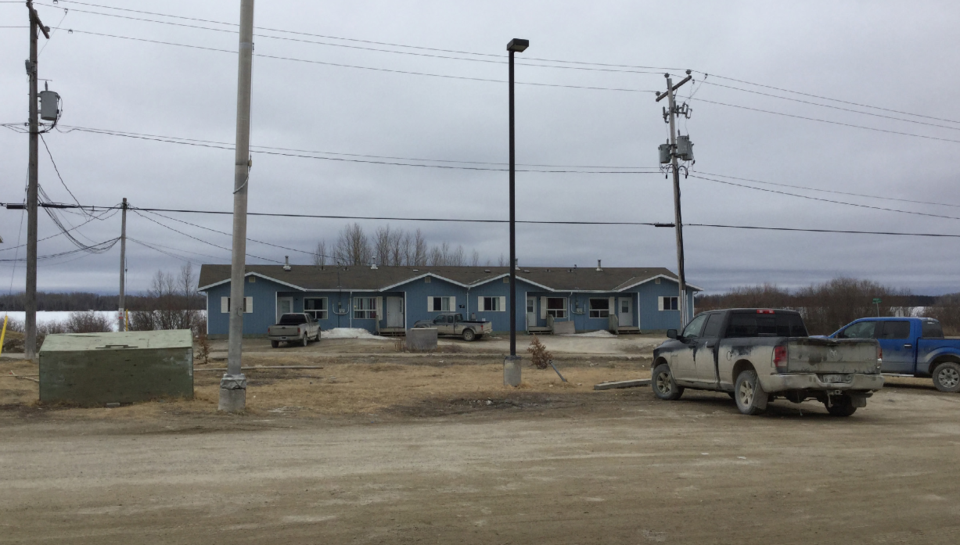The Chief of Bearskin Lake First Nation says his community isn’t receiving all the federal support it’s been promised as it confronts a major COVID-19 outbreak, calling Canada’s response “minimal."
The federal government has said it's "cautiously optimistic" the support being provided is adequate, however, pointing to millions in new funding and staffing assistance it's offered in recent days.
The community, located about 400 kilometres north of Sioux Lookout, declared a state of emergency on Dec. 30 due to the outbreak, which has seen more than 200 of roughly 480 members test positive.
The spread of the virus led the provincial government to call for military intervention last week, with Solicitor General Sylvia Jones saying the First Nation urgently needed backup, with only an estimated 20 people healthy enough to offer vital services.
“The current level of support required by the community exceeds the ability of these few staff to manage,” she wrote in her appeal to the federal government.
On Wednesday, Chief Lefty Kamenawatamin issued a terse statement flagging what he described as seriously insufficient support from the feds.
He said only five of seven promised Canadian Rangers were present in the community, while seven had been authorized to be deployed starting Monday. The deployment was to last through Jan. 23, following an assessment by the Canadian Armed Forces.
The shortfall could be because local members of the rangers were still waiting for their isolation period to end, he said.
Three rangers have arrived from outside of the community, while two local members had been activated, he reported Wednesday.
The rangers are intended to help supply basic necessities like food, water, and firewood, conduct wellness checks, and otherwise support the outbreak response in areas like communications and setting up isolation areas.
“We are disappointed with Canada’s response,” said Kamenawatamin. “Our community was anxiously waiting for help, and we were comforted by the thought that Canada would step in to provide us with much needed physical and moral support. In the end, however, this help has been minimal.”
The situation served as “another example of a long history of dishonesty and neglect from Canadian governments,” Kamenawatamin said.
Indigenous Services Canada said the federal response to the outbreak has been robust, including millions in funding along with provision of nurses and other supports along with deployment of Canadian Rangers.
“Following community reports, we are cautiously optimistic that members of Bearskin Lake First Nation are feeling supported and their needs are being met in terms of case and contact management and testing; as well as meeting their food and personal supply requirements,” the department said in a statement shared with Dougall Media.
Kenora MP Eric Melillo echoed Kamenawatamin’s assessment of the situation in a statement issued Tuesday.
“It is clear Bearskin Lake is not getting the help they need to weather this crisis,” he said. “The Chief requested military support on Jan. 1. The government waited over a week to act and only sent a handful of Rangers. The community is overwhelmed and needs more support than this.”
A representative for Indigenous Services Canada (ISC) directed questions over ranger deployment to National Defence Canada, which did not immediately respond to a request for comment Wednesday.
The government has provided substantial aid to the community, according to ISC, working with community leadership, the Windigo First Nations Tribal Council, the Sioux Lookout First Nations Health Authority (SLFNHA), the province, and the Northwestern Health Unit.
Nearby First Nations have also donated supplies, sending planes with items such as food, medicine and air purifiers.
ISC said it had deployed a team to offer testing on Dec. 30, and increased nursing resources the same day, and provided $1.2 million for food security, PPE, transportation, wages for community workers, and other outbreak response.
Community leadership has indicated it expected at least $1 million in transportation costs related to the outbreak alone, to bring staff, volunteers, and supplies in.
The department said it had also supplied three vehicles to help transport workers and goods.
ISC also said it approved a request for $25.3 million in funding for SLFNHA to provide pandemic-related isolation capacity, supplies, and transportation in December.



